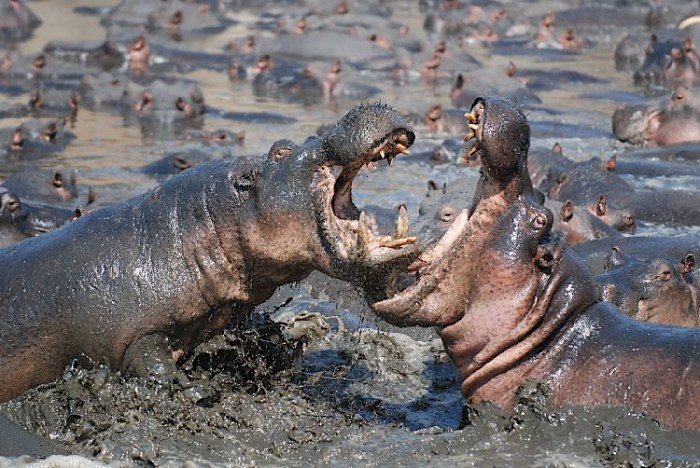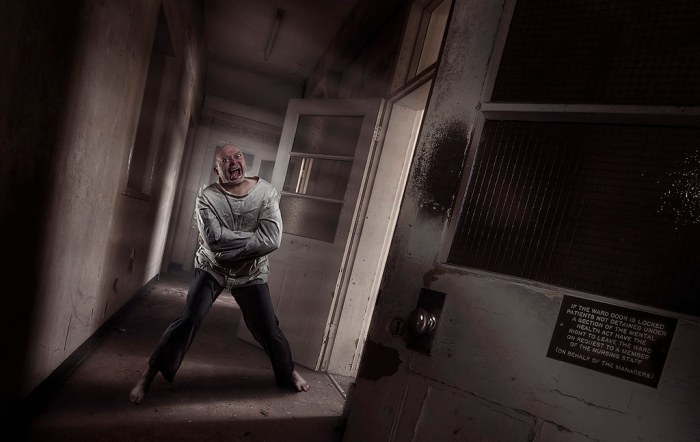
Wow, yet another post on writing tips. Grab the popcorn, this is going to be entertaining, my mind’s gonna be blown apart, you’re probably not thinking.
Writing advice posts are everywhere, especially if you follow many blogs on the craft of the written word. And after a while they do tend to get a bit repetitive. But not only that, some contradict others quite starkly, and you may become very confused on how to go about everything.
Well you needn’t be. I don’t mean that after reading this you will know exactly what to do and what not to do, of course. I’m sure, through experience, you will discover what works for you. No, this is a post about bringing these conflicting nuggets of writing advice together in a huge, bloody fight till the death.
Right then. Gloves off. Let’s do this thing!

Read many genres vs. Only read your own genre
Writers need to read.. yada yada yada. We all know this and if you’re someone itching to write a story to tell the world, chances are you got this motivation in the first place by reading. As you continue your art, you will certainly up the reading ante also.
But what exactly should you be reading? Whatever you want? Well yeah, but not quite.
If you want to write horror it’s probably a good idea to read some frightening fiction to start with. Romance; get some slushy stories in your love-obsessed mind, and so on.
It’s argued – well, suggested– that the writer needs to understand many different genres and not pigeon hole themselves into one. Experience of reading sci-fi to YA to historical will give you great insight into what different reader groups enjoy. Taking influence from the blossoming romance portrayed in a lovey book will help to build the kinship between two lovers in that sci-fi western you’re working on, right?
The tension built in that contemporary crime thriller will help with the scene-building in your historical tale about the Romans, or whatever. No?
Yes, I suppose it will. And it’s certainly good advice, giving you that knowledge of styles and subjects you’d perhaps never considered before.
But let’s talk horror (I know no other language). If you’ve read the greats of the grotesque, you’ll realise that the reason the terrors are so vivid and real, is that the characters are, too. By reading books written by the leaders in the horror field you’re already getting all that experience about what makes a good character arc whilst feasting on a frightening story. So who needs multiple genres?
By reading your chosen niche you also keep your finger on the pulse of what works and what doesn’t. You will also get inspiration and ideas that you can flesh out or alter slightly for your own work. A horror writer will read much horror, I’m sure. And they should do.
Writing in the 1stperson is amateurish vs. Write in the 1stperson, it’s great
I’ve read articles and blogs that say, at all costs, avoid writing in the first person. It reeks of the amateur writer, they say. I can kind of understand their reasoning. When writing in the first person you’re very limited to what you can convey in your story. The reader only experiences what the narrator does, or what the narrator chooses to tell them, more like.
I’ve seen book bloggers tiring of the unreliable narrator, seeing the style as one that’s been done to death. I do agree to a certain extent, but when things don’t turn out anything like you expected because you’ve been deliberately misled, that can only be a good thing, surely?
I enjoy reading in the first person, especially if the protagonist has various ‘issues’. Getting inside their head and visualising their twisted version of reality really adds to the story.
Reading about a descent into madness written in the third person is great for describing the change in the character’s behaviour, how people see them, etc. But witnessing first hand their innermost thoughts and feelings, really puts you in their head. So much so, you may want to escape from there. If you can!
And can you imagine American Psycho written by an omnipresent narrator? Exactly.

Read, read, read, then read some more vs. Yeah read, but also write
Like many writers, I write when I have the time to do so. I have a full time job and a family, so fitting in time to write some morbid tales of malevolent desecration can sometimes be difficult. Finding the balance between reading, writing, and real life stuff, can be tricky. Sometimes, if you’re on a roll with that story or scene, finding the time to chill out with a book can be difficult.
I won’t repeat myself and say writers need to read (whoops, I just did!), but sometimes you need to put your WIP before your research/personal enjoyment (ie. reading). Being immersed in a killer novel could even detract from your writing endeavours as you put off firing up the laptop in favour of getting through a few more chapters.
You may even have that enjoyable novel buzzing around your brain while trying to work on your own story, figuring out exactly how your character’s body is going to be mangled, and what kind of sound it will make as its bones snap. It can be quite distracting.
So yeah, read lots, but not to the detriment of your latest opus. Whereas the novel you’re reading will still be there when you’ve finished writing, your awesome idea may disappear into the void if not acted upon straight away.
Are you predominantly a reader or a writer?
Write every day vs. Allow some much needed down time
This is similar to the above point, so I won’t go on too much. The only way to get better at writing is to, erm, write. A writer also needs to re…. OK, I’ll stop mentioning this now.
The best way to get this practice is to do it every day. Do you think those multi-millionaire sportspeople got where they are today by taking days off? Of course not, you need to be motivated and get your shit together in one big shiny groove. Write every day and you’ll be vomiting short stories and novels in no time at all.
Yeah, but having some much needed downtime can work wonders for when you do get around to the writing. You can stew over ideas, safe in the knowledge you’ve got a few days until you have to commit them to the computer. They may even change from good ideas to awesome ideas in that time. Taking a break also gets you more motivated when you eventually do sit down to write. Suddenly your creative juices will flow like the crimson goodness from a freshly slit throat.
Some sources advise that if you only have 15 minutes to spare, use that 15 minutes to write. Personally, I wouldn’t be able to get much done in that time. I need longer to ‘get in the zone’. But then perhaps I need to become a bit more focussed, or something.

Write first, edit later vs. Edit as you go
Aah, that dreaded first draft. They’re always shit aren’t they? Well it doesn’t matter. Do you think Stephen King sat in a room and bashed out It in one go? OK, bad example, he probably did. But once you’ve worked through that first draft you can sit back, read through it, and tidy everything up.
Fix those typos, remove regularly repeated words, and other edity things. Take off your writing hat and don that editing one. Don’t be two-hatted wonder, you’ll look stupid, it’ll probably mess up your hair, and you’ll lose the flow of your story.
But will you, really? If you’re one of those plotter people you already know where the story’s going, so taking your time and re-doing portions of the tale as you go will only save you time when you come to re-read the whole thing and begin those dreaded edits.
You know when you’ve completed that first draft and it’s time to have a read through to remind yourself what you’ve written? I only write on a computer so there’s no red pen for me, but reading through what I’ve done, I find it very hard to not fix the typos as I go. This seems to detract from the flow of the story as I read it, meaning I need to read it again afterwards.
By all means if you’re on a roll, and the clickety-clicking of the keyboard sounds like a tiny army on the march, don’t halt your troops to check their uniforms are all ironed neatly to the detriment of them arriving late for battle. Just make sure their tiny weapons are fully loaded. (This is quite a strange simile I admit, but you know what I mean – hopefully)
Never write book reviews vs Get writing those book reviews
A few months ago this topic was all over Twitter and various author blogs. Not that arguments ensued between those on different sides of the authors reviewing fence, but it was very interesting to read others thoughts on the subject.
Writing reviews of books you’ve read goes against your brand. You’re an author, you write books. You don’t write about books. Writing reviews makes you a book reviewer and not an author. There needs to a be a distinction between the two. It’s a conflict of interest.
That’s kind of how the argument goes.
I started writing book reviews over two years ago. The reason for this was simply that I was running out of content to post on my blog. I’d read some pretty awesome books and felt they needed some recognition. Two years later and book reviews now take up the majority of my posts.
I love doing it, it feels like I’m giving something back. Plus it’s all writing practice. You should see how fast my fingers move over the keyboard these days!
You can read my post on why I write reviews and why I think all authors should by clicking this shiny little linky thing right here.

If you’ve reached this point then I’m sure you’re wondering if you’ve actually learned anything. Well, you probably haven’t, sorry about that. If you are an established or aspiring writer looking for pearls of wisdom, I’m sure you’ve read many other and more insightful blog posts before stumbling upon this one.
But it’s good to re-think your whole creative process and how you go about creating your stories. Many of us are set in our ways and hopefully a couple of these points will resonate with a couple of people.
If so, add me to those bestselling book royalties!
If not, your attention to my ramblings is very much appreciated.
Happy writing, writies!
Photo on Visual hunt
Photo credit: nilsrinaldi on VisualHunt / CC BY
Photo credit: shando. on VisualHunt.com / CC BY-SA
Photo on Visualhunt.com
Photo credit: mastrobiggo on Visual Hunt / CC BY-NC-SA
Categories: writing

That was a fun look at both sides of things. It makes me relax a little to think, Okay, I DON’T have to read that popular book in that popular genre if I’d rather read another James Herbert. And it’s okay if I keep slipping into first person in my WIP; just go with the 1st person. And yeah, I probably shouldn’t read so much while I’m trying to finish a novel. Interesting post, lots to think about!
LikeLiked by 1 person
Thanks so much, and massive thanks for your review of The Mind’s Plague, much appreciated!!!
LikeLike
Có thể dùng sữa như một nguyên nhiên liệu thực
hiện bánh, làm kem. http://www.worldofarticles.com/article.php?id=66970
LikeLike
I agree with focusing on a chosen niche to develop expertise and inspiration.
LikeLike